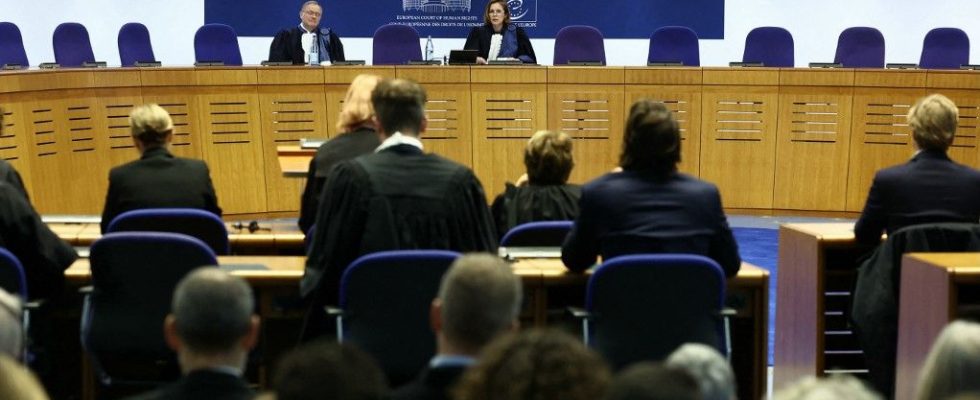A historic judgment. The European Court of Human Rights (ECHR) on Tuesday condemned, for the first time, a State for climate inaction, in this case Switzerland. What changes does this decision, which will set a precedent? 20 minutes make the point.
What does the judgment say?
The ECHR, responsible for ensuring compliance with the European Convention on Human Rights, had received a request from the Swiss Association of Elders for Climate Protection. These women considered that Bern was not taking sufficient measures to mitigate the effects of climate change, in violation of their rights to life, health and well-being.
The Grand Chamber, the most solemn formation of the ECHR, composed of 17 judges, treated this case as a priority, and ruled in favor of the Swiss association. On the other hand, it rejected the individual requests made by four members of the association.
It concludes that the Swiss Confederation, “failing to have acted in a timely and appropriate and coherent manner”, failed in its obligations and was guilty of “serious shortcomings”, in particular by not quantifying the applicable national limits. greenhouse gases (GHG), for example using a carbon budget.
Consequently, the Court found that there had been a violation of Article 8 (right to respect for private and family life) of the convention. She further said that there had been a violation of Article 6 relating to access to a court. Switzerland must therefore pay 80,000 euros to the association for legal costs.
What consequences?
The ruling of the ECHR is final. Switzerland has an obligation to respect it and therefore to redouble its efforts to fight climate change. “This detailed ruling will be analyzed with the authorities concerned and the measures that Switzerland must take for the future will be examined,” the federal government said.
Alain Chablais, who represented the Swiss government before the ECHR, explained that “the means (to be implemented) will be determined by the Swiss government and the Swiss parliament” and that it will take “a certain time to determine what measures will be taken “.
The Committee of Ministers of the Council of Europe will verify that Switzerland complies with this judgment. “We will be extremely attentive to ensure that Switzerland implements the decision,” warned Anne Mahrer, one of the environmental activists who condemned Berne.
And now ?
The judgment sets a precedent, meaning it can serve as a reference in other cases relating to climate change – there are currently several other cases before the ECHR related to this subject. This decision has implications for Switzerland but not only: it applies in the 46 member states of the Council of Europe.
In its judgment, the ECHR explains that national authorities have a “margin of appreciation” and can choose the measures to put in place to achieve their objectives, but the court nevertheless clarified what was necessary.
A State must therefore have precise objectives in terms of reducing greenhouse gases, a carbon budget or any other equivalent method of quantifying future GHG emissions, as well as a monitoring mechanism to verify that these objectives are achieved.
“The Court has set a list of requirements for a State to comply with its climate obligations and that is completely new and it is something very spectacular and very pleasing,” said Raphaël Mahaim. , one of the lawyers of the association of Swiss Elders for the climate. “There are high hopes that things will move quite quickly. »
“This is only the beginning when it comes to climate litigation: all over the world, more and more people are taking their governments to court to hold them accountable for their actions,” said Swedish activist Greta Thunberg, present at Strasbourg for the decision.
And France in all this?
The ECHR, on the other hand, ruled inadmissible the request of the former environmentalist mayor of Grande-Synthe (North), Damien Carême, who asked it to condemn the French State for climate inaction. Damien Carême was not recognized as a victim, said the president of the court, Siofra O’Leary.

